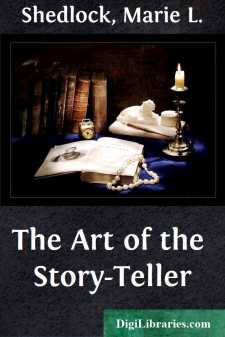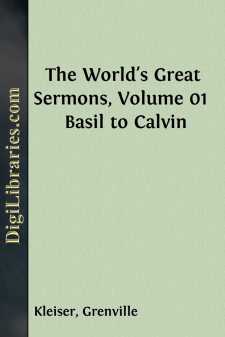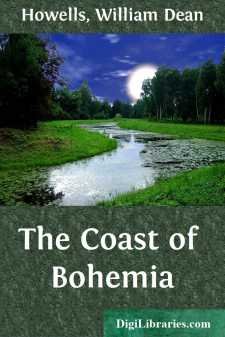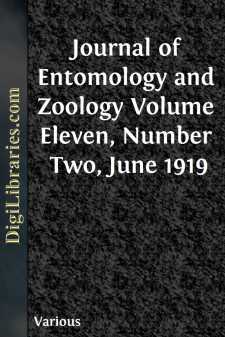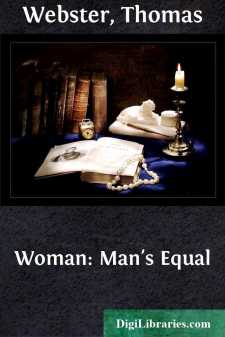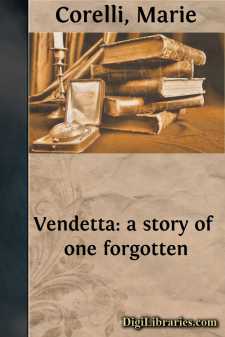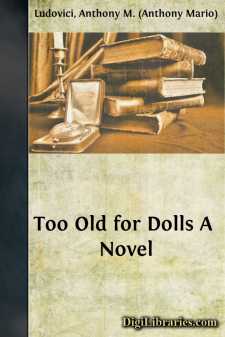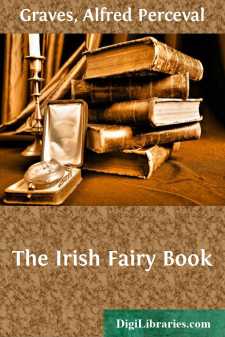Fiction
- Action & Adventure 180
- Biographical 15
- Christian 59
- Classics
- Coming of Age 5
- Contemporary Women 3
- Erotica 8
- Espionage/Intrigue 12
- Fairy Tales, Folklore & Mythology 236
- Family Life 169
- Fantasy 117
- Gay 1
- General 596
- Ghost 32
- Historical 808
- Horror 43
- Humorous 160
- Jewish 25
- Legal 4
- Medical 22
- Mystery & Detective 315
- Political 49
- Psychological 41
- Religious 64
- Romance 159
- Sagas 11
- Science Fiction 730
- Sea Stories 113
- Short Stories (single author) 537
- Sports 10
- Suspense 1
- Technological 8
- Thrillers 2
- Urban Life 31
- Visionary & Metaphysical 1
- War & Military 173
- Westerns 199
Classics Books
Sort by:
As the most striking lines of poetry are the most hackneyed, because they have grown to be the common inheritance of all the world, so many of the most noble deeds that earth can show have become the best known, and enjoyed their full meed of fame. Therefore it may be feared that many of the events here detailed, or alluded to, may seem trite to those in search of novelty; but it is not for such that...
more...
Story-telling is almost the oldest art in the world—the first conscious form of literary communication. In the East it still survives, and it is not an uncommon thing to see a crowd at a street corner held by the simple narration of a story. There are signs in the West of a growing interest in this ancient art, and we may yet live to see the renaissance of the troubadours and the minstrels whose...
more...
INTRODUCTION Collections of sermons by noted preachers of different periods are not an altogether uncommon contribution to literature. Italy, Germany, Holland, France, Great Britain and the United States have in this way furnished copious illustrations of the gifts of their illustrious preachers. Such treasures are found in the Latin and even in the Greek Church. Protestant communions especially, in...
more...
by:
Henry James
FROM MISS MIRANDA MOPE, IN PARIS, TO MRS. ABRAHAM C. MOPE, AT BANGOR, MAINE. September 5th, 1879. My dear mother—I have kept you posted as far as Tuesday week last, and, although my letter will not have reached you yet, I will begin another before my news accumulates too much. I am glad you show my letters round in the family, for I like them all to know what I am doing, and I can’t write to...
more...
INTRODUCTORY SKETCH. In one of the old-fashioned books for children there was a story of the adventures of a cent (or perhaps that coin of older lineage, a penny) told by itself, which came into my mind when the publishers suggested that the readers of a new edition of this book might like to know how it happened to be written. I promptly fancied the book speaking, and taking upon itself the burden of...
more...
by:
Various
ALMA EVANS The animals were studied from serial sections cut in several planes. The stains used were carmine, hematoxylin and eosin. The hematoxylin seemed to show the tissues more clearly. A graphic reconstruction was attempted, but did not prove satisfactory because of the individual artificial foldings and contractions. The drawings were obtained by the use of a camera lucida. The general drawings,...
more...
by:
Thomas Webster
CHAPTER I. Natural Rights.In the discussion of the question of woman's equality with man, I purpose to prove from the Bible, as I believe I can, that at the creation there was neither superiority nor inferiority ordained between Adam and Eve; and that the partial distinctions which have for ages existed, and which still exist, are of man's invention; and may, therefore with propriety, be...
more...
by:
Marie Corelli
CHAPTER I. I, who write this, am a dead man. Dead legally—dead by absolute proofs—dead and buried! Ask for me in my native city and they will tell you I was one of the victims of the cholera that ravaged Naples in 1884, and that my mortal remains lie moldering in the funeral vault of my ancestors. Yet—I live! I feel the warm blood coursing through my veins—the blood of thirty summers—the...
more...
THE ENGLISH FLAPPERFrom Nature's anvil hot she hails,The forge still glowing on her cheek.Untamed as yet, Life still prevailsWithin her breast and fain would speak.But all the elfs upon the plain,And in the arbour where she lolls,Repeat the impudent refrain;Too young for babes, too old for dolls.Her fingers deft have guessed the knackOf making each advantage tell:Her hat, her hair still down her...
more...
Preface Irish Fairy Lore has well been called by Mr. Alfred Nutt, one of the leading authorities on the subject, “As fair and bounteous a harvest of myth and romance as ever flourished among any race,” and Dr. Joyce, the well-known Irish scholar and historian, states: “that it is very probable that the belief in the existence of fairies came in with the earliest colonists that entered Ireland,...
more...



